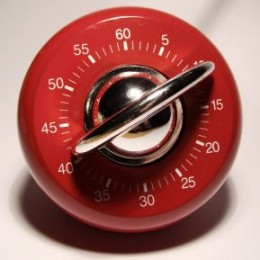How long should you practice?

Having set all our goals right and being fully prepared and in practice-mode, we can finally start to practice. This leads automatically to the most common question asked by students.
How long do I need to practice?
Simple answer: As long as you need to be able to play the piece, you want to play.
No worries, you do not need to practices for hours and hours the entire piece in one day or one go! It might be even not possible. Although I can not tell you how long you need to practice to acquire all the skills you need to play a certain piece, I can share with you some guidelines on how long your practice sessions should be and how long one actually can practice and learn on one day. The best thing about it is, that if you do not want to waste time on unfocused practicing, you will have to plan your practice session and…
planning practicing is also planning your breaks.
It is not possible for our brain to stay focused and concentrated for a prolonged time. While sometimes being concentrated for 7 min can be already counted as a success, experience and many scientific studies have shown that a concentration period of 20-30 min is the maximum we should do. (Pomodoro – Technique).
For myself I plan practice sessions of 2x 20 min interrupted by a 5 min break. Followed by a break of at least 10 min before I start the next activity or practice session. (A break of more than 15 min can be too long and it might be hard to get into focus again).
Of course some pieces are longer than 20 min and we need to practice running through an entire piece as well to get everything we practiced into context and to test our endurance. Memorization and learning though happen mostly during breaks (and while we sleep). Making enough short breaks and not using them for any other task that requires concentration is next to sleeping enough one of the most important rules for efficient learning.
You also will need to…
Spread your practicing over a period of time
Bad news for a typical last minute worker: There is much scientific evidence, that spreading the repeats and revisions over a longer time period leads to a better memorization.
There are more and more studies, that suggest that practicing more than 4 h per day (if practiced mindfully) can be even counterproductive.
Saving something into your long term memory takes time and after having spent a certain amount of time one one day with something, there is nothing you can do anymore to memorise it faster. On the contrary, there seems to be even the possibility to make things worse after more than about 150 repeats. We have to live with the fact, that we have to stretch out something we want to learn sometimes over a couple of days, so that it can settle fully in our memory and there is enough evidence that the same amount of repeats, but spread over a longer period of time is much better than spending the same time on something in one block.
So if you have done your planned amount of repeats (more on repeats later) It might be sometimes wiser to stop and to come back to it at a later moment.
It is ok to practice one passage for a while, then after a few seconds break another one and after another short moment of rest to come back to the first bit. This helps especially those who get bored easily.
As said before practising is a process and it is sometimes simply not possible to achieve everything we planned in one session. (more… on memory related learning principles)
Suspense
It is therefore good to set yourself a certain time-frame of how long you want your practice session to be (remember the SMART-Goals?). Finish when the time you set yourself is up, even if you do not feel “done” with some difficult spot, you wanted to practice. Firstly, as said before, it is sometimes not possible to memorise a difficult passage in one session, and secondly you create a suspense – feeling. Like on TV or in movies, this interruption of your practise-story with a cliff-hanger can be a huge motivating factor to start with your next practice session after a break or the next day. You know then already something you can focus on and start with. So, don‘t forget to write down this “unfinished“ task in your practice log and continue the story in your next session.
Next lets see what and how our brain memorizes: Practice to Remember!


